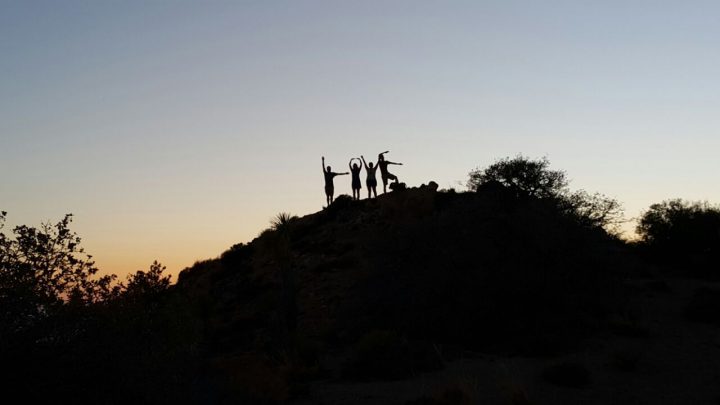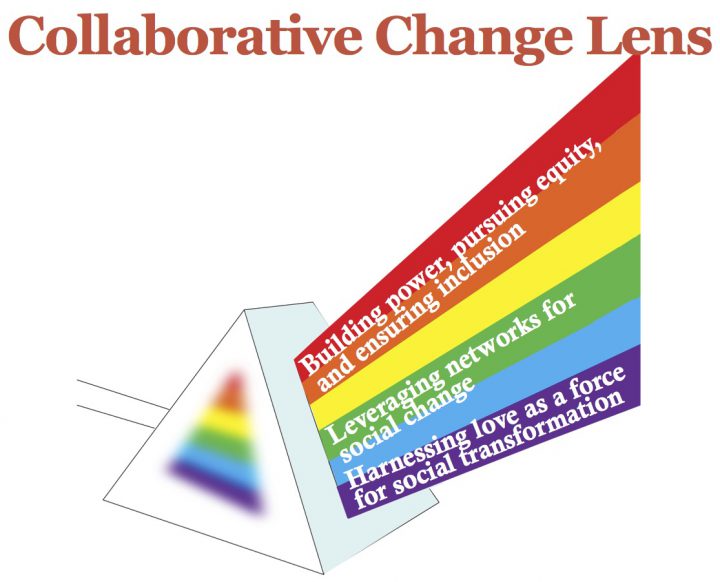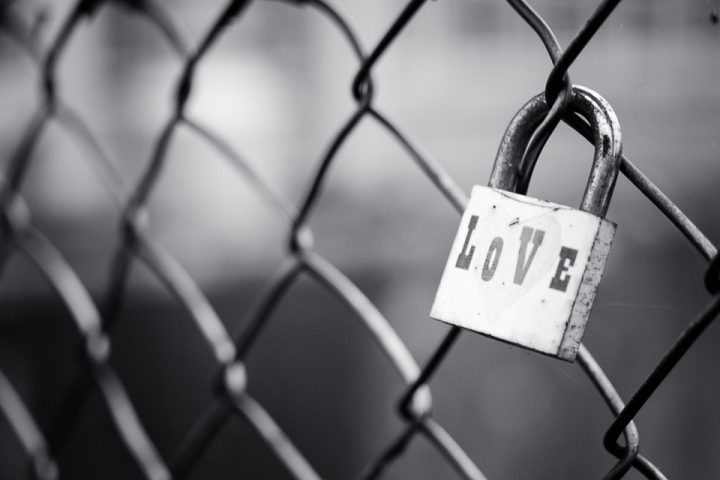Welcoming 2018: The Year of … Love
January 3, 2018 1 Comment“We rise and fall and light from dying embers, remembrances that hope and love last longer
And love is love is love is love is love is love is love is love, cannot be killed or swept aside.”
– Lin Manuel Miranda

Photo by Denise Krebs, shared under provisions of Creative Commons Attribution License 2.0.
We know we are not alone at IISC when we say that 2017 left many of us a bit exhausted and breathless, if not somewhat dumbfounded. What occasionally felt like the wheels coming off of our country’s management and morality caught us by varying degrees of surprise, which is not to say that the underlying frustration and ongoing dynamics of “othering” were necessarily shocking. Rather, the unabashed in-your-face tenor of it all got to points where it was all I could do to stay even minimally tuned in to have at least a fingernail on the pulse of things (but really, there were few places to hide!).
I am grateful that as an organization we take a break at the end of the year to rest, restore and reflect. And while some of us may feel like we could use another week (or two), I for one feel ready and resolved to step boldly into 2018 with an open heart and humble sense of not knowing (what will happen, what is in others’ hearts and minds, what the answers are). I would characterize this as a stance of love or loving kindness.

“All awakening to love is spiritual awakening… All the great social movements for freedom and justice in our society have promoted a love ethic.”
– bell hooks
Love is one facet of our collaborative change lens at IISC (see above), which also includes related facets of seeing networks as the fundamental unit of change and the necessity of naming and addressing power dynamics for greater inclusion, equity belonging and liberation. We often are asked how we define love as an organization, and honestly we do not have uniformly agreed upon wording (love is, after all, ineffable in many wisdom traditions). That said, we would all likely say that love can be defined in terms of its absence, resulting in disconnection, disregard, disrespect, disenfranchisement and dehumanization. And we will also occasionally make the connection between love and power in quoting Cornel West:
“Justice is what love looks like in public.”
West’s quote connects to the words of William Sloane Coffin, who once said:
“To show compassion for an individual without showing concern for the structures of society that make him an object of compassion is to be sentimental rather than loving.”
One of my own favorite definitions of love that I occasionally put out there during trainings and in consulting work with various social change networks comes from the Chilean system biologist Humberto Maturana. Maturana has looked seriously at love as a crucial element in living/social system intelligence. He has defined love as essentially seeing the other as a legitimate other and acting accordingly. At first blush, this may feel a bit technical, lacking a certain kind of poetry. But if you consider what it takes to really accept another person fully, to honor their humanity, the inherent work and result might be appreciated. Maturana writes:
“We think that other lineages of the human kind may have become extinguished through the negation of love in mutual destruction or ecological blindness. Love opens our intelligence for reflection and gives us the possibility to choose.”
Another favorite definition comes from Nora Bateson when she writes in her beautiful book Small Arcs of Larger Circles:
“The ultimate act of love is allowing ourselves and others to be complex.”
This idea of holding our own and others’ multitudes (of experiences, feelings, actions, shortcomings, talents) is a call to bold, generous and generative work.
No matter how you define it, I imagine there are many who would agree that we are hurting in the love department and even at collective risk for its lack. I can only hope to make that much more progress towards the capacity to love in the coming year, embracing my own and others’s fuller intelligence and beauty and in so doing to encourage the better world we know is possible.

Photo by Beat Tschanz, shared under provisions of Creative Commons Attribution License 2.0.
1 Comment